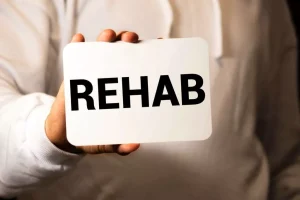
What most people don’t realise is that the painkillers we can buy from our pharmacies can cause addiction too. Recovery from Ibuprofen addiction is a process that takes time and effort, but it is possible with the right support and treatment. If you or someone you know is recovering from Ibuprofen addiction, it’s important to be patient, stay committed to the recovery process, and seek help when needed. The chain effect of addiction extends into the realm of professional obligations, where individuals are likely to place higher importance on satisfying their dependence than on fulfilling work-related tasks. In essence, every aspect of someone’s existence could potentially be compromised by the far-reaching consequences stemming from an addiction to substances like ibuprofen. The FHE Health team is committed to providing accurate information that adheres to the highest standards of writing.
Signs of an Ibuprofen Overdose
If so, the Recovery HQ Team is here to assist you during this difficult time. Please contact us today and we will do all we can to get you the help you need. Ibuprofen addiction is a treatable condition, and early intervention can help prevent serious health problems. It is crucial to steer clear of the improper use of ibuprofen to avoid these medical problems. Special care should be taken in controlling even moderate pain for certain groups, such as pregnant women. Ibuprofen addiction can be motivated by physical causes as well as emotional reasons.
prescribed 600mg three times a day of ibuprofen, is it too much?

Treatment for a behavioral or “process” addiction and/or co-occurring anxiety disorder can be very effective at helping people break free of a harmful habit that’s destroying their quality of life. Usually, patients benefit most from an initial period of detox from the substance, immediately followed by inpatient or outpatient treatment or both (in succession of one another). Pain can also be treated through non-medication methods, such as massage, heat and cold applications, acupuncture, meditation and physical therapy. Transcutaneous electrical nerve stimulation (TENS) is another promising treatment for chronic pain management. This noninvasive treatment uses electrical impulses to stimulate nerve cells and block pain messages to the brain. TENS works quickly and can be self-administered in the comfort of your home.
Who’s at Risk for Painkiller Misuse?
- Other treatments are likely required, such as counselling and behavioural therapy.
- Please contact us today and we will do all we can to get you the help you need.
- The most common ones are buprenorphine (Buprenex, Butrans, Probuphine, Suboxone) and methadone (Dolophine, Methadose).
- In chronic cases, patients will actually have a heightened sense of pain if they stop taking the medication so it is important to avoid the problem in the first place.
- Ibuprofen is an NSAID, which is a type of medication with analgesic, fever-reducing, and, in higher doses, anti-inflammatory properties.
Maybe you’re taking them because you like the way they make you feel instead of to relieve pain. While they’re usually not life threatening, these symptoms can be painful and hard to live with. Opioid use disorder can lead to serious consequences like addiction or even death.

They are designed to help treat your pain, but Ibuprofen addiction can lead to some serious health concerns. If you regularly take NSAIDs to control inflammation and swelling, you can expect it to return again. Increased swelling may increase your pain again, which can have secondary withdrawal consequences. You may experience anxiety simply because new pain tends to have this effect.
Additional expert panel members were selected by Ameritox based on their expertise in the field of pain management and/or management of addicted patients. JSPH organized and moderated both conference calls for the project; the discussions and recommendations from the December call are https://ecosoberhouse.com/ summarized in this article. In this group, there may be a past history of SUD or a strong family history of problematic drug use. Although not actively addicted, these patients do represent increased risk that may be better managed in consultation with appropriate specialist support.

Ibuprofen addiction is a treatable condition, and with the right support and treatment, people can overcome their addiction and live a healthy, fulfilling life. Even though Ibuprofen can be purchases without a prescription, it is a compound that someone can become addicted to. It is part of the non-steroid anti-inflammatory medications (NSAIDs) that patients will often take to treat muscle pain, headaches and joint pain. In moderate doses and as long as patients do not take this medication daily, 60 percent of patients will respond positively to this medication.
People who are athletic or work in physically demanding jobs will often reach for a bottle of ibuprofen for pain relief. Managing an ibuprofen dependency can be difficult — especially if you’re living with chronic pain — but you don’t need to face this challenge alone. If you’d like to cut back on your ibuprofen use but aren’t sure where to start, contact us at Sunlight Recovery today to get help. Hypnosis is a promising non-pharmacological option for people with ibuprofen dependency.
More on Substance Abuse and Addiction
NSAIDs are safer than both of these, as long-term steroid use can have severe adverse effects, and taking opioids can result in improper use. The authors declared no conflicts of interest with respect to the research, authorship, and/or publication of this article. Funding for this project was provided by Ameritox, Ltd. to the Jefferson School of Population Health (JSPH), which provided administrative and manuscript support. Dr. Reddy initiated the idea for this article and served as the project chair.
Warning Signs Your Painkiller Use Is a Problem
- One in five U.S. adults (over 50 million Americans) suffer from chronic pain and taking over-the-counter pain medication is typically the first line of defense.
- Experts do not generally consider ibuprofen to be a medication that will lead to substance use disorder, although at least one case study suggests this is possible.
- Research shows that counseling helps people stay engaged in therapy and reduces the risk of relapse.
- This article explains what happens when you stop taking NSAID analgesics, such as ibuprofen, as well as other pain medications.
- You may also find your mood to be lower than normal during antidepressant withdrawal, though this is more common if you had mood difficulties prior to your treatment for chronic pain.
If you have any questions when picking up your medication, you can ask the pharmacist or call your doctor for clarification. No matter what, don’t take any more than the recommended daily amount for any over-the-counter medication, including ibuprofen. An example of misusing ibuprofen would be taking this drug is ibuprofen addictive proactively or as a preventative measure. People who get used to taking it in this way may be more likely to develop an addiction over time as it becomes part of their daily habits. In short, ibuprofen inhibits the production of substances in your body that cause issues like pain, fever, and inflammation.